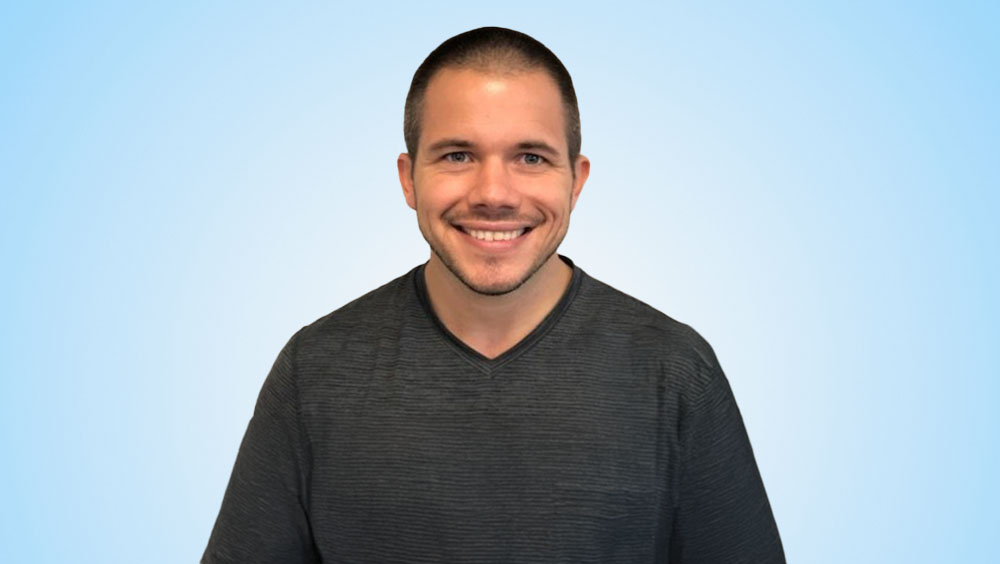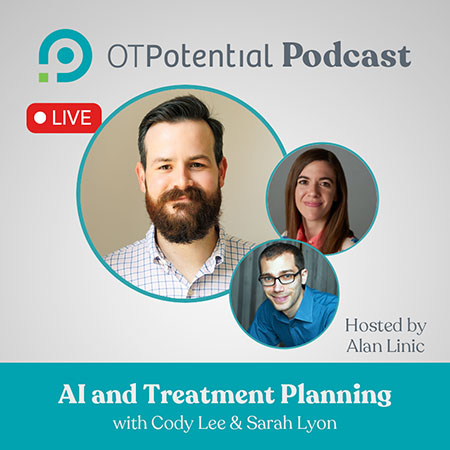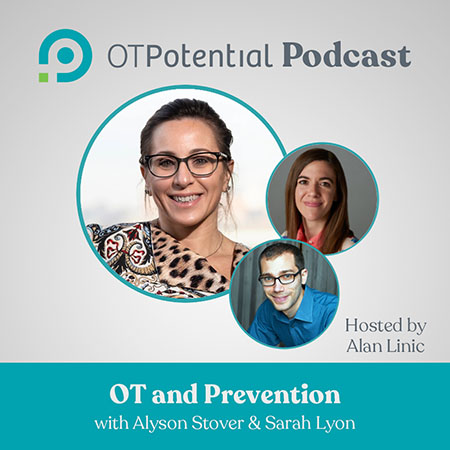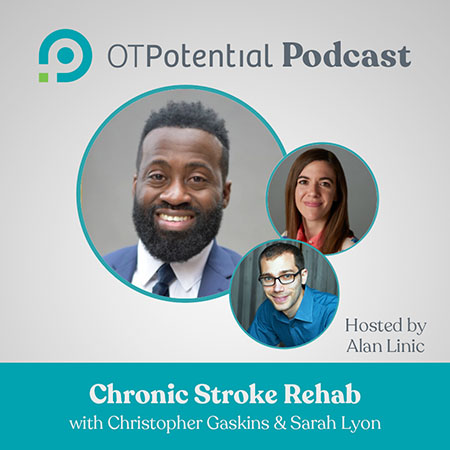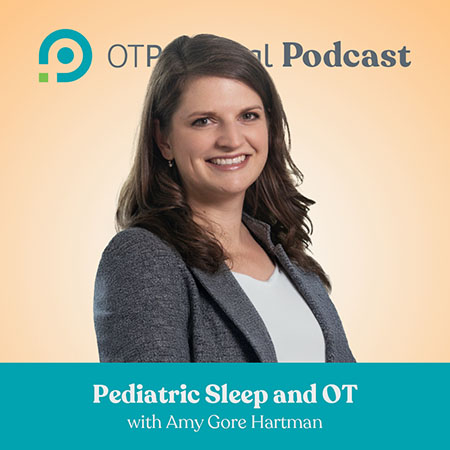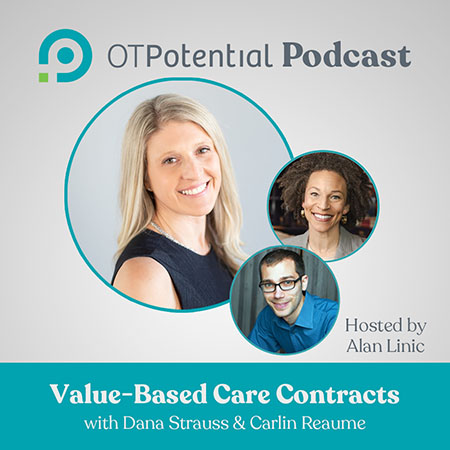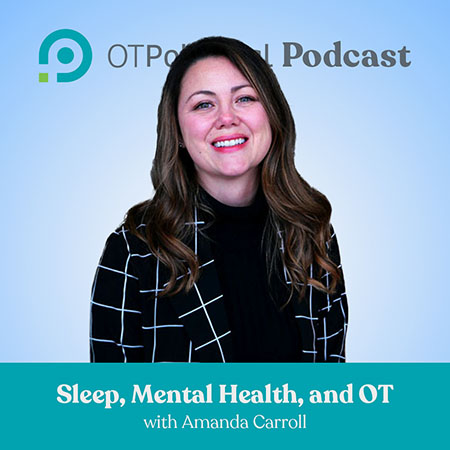Earn 1 hour of continuing education by joining OT Potential after taking this course.
Artificial intelligence is ushering a new era of healthcare tools. These range from ambient listening to streamlined practice management. But, the AI-supported that I believe will truly transform occupational therapy is:
Clinical Decision Support.
To be honest, it often feels like we have more clinical decision barriers than we have support. Our EMRs currently give us a set number of checkboxes, which massively pigeonhole our services, and often DO NOT reflect the kinds of best practice we teach here at OT Potential.
But, on the near horizon is dynamic point-of-service support that will help you choose the right assessments, set the right goals, and pursue the right treatment path for the patient in front of you.
Oh, and it will also be watching for red flags.
This is a lot to wrap our minds around. But, if we do it well, I think we will future proof our profession for changes to payment models and regulations, because it will so drastically increase our value.
In this course, we’ll review a new journal that outlines clinical decision support across 6 domains. Then, to walk us through what’s here now and what’s coming soon, I’m so thankful to welcome Brad Willingham, PhD, a clinical research scientist at Shepherd Center who has been focused on how AI is going to support clinical decision support.
Primary Journal Article Explored
When you log in, be sure to check out the OT Potential Club’s written breakdown of the following research article. Then, share your questions and thoughts with fellow practitioners.
Supporting Research and Journal Articles
- Effectiveness of Artificial Intelligence (AI) in Clinical Decision Support Systems and Care Delivery.
- Leveraging explainable artificial intelligence to optimize clinical decision support.
Learning Objectives
- You will recognize ways clinical decision support could help you make decisions at the point of care.
- You will be able to identify the ways that AI will enable this real-time clinical decision support at the point of care.
Agenda
Intro (5 minutes)
Breakdown and analysis of journal article (5 minutes)
- Intro to AI and Clinical Decision Support
- Intent of this article
- Methods
- The 6 domains of clinical decisions support
- Conclusion and recommendations
Discussion on practical implications for OTs (50 minutes)
- Can you tell me about your current role & how you became interested in AI and rehab?
- How do you see AI improving clinical decision support?
- Coming from Shepherd Center, how have you historically thought about clinical decision support and how is AI changing your understanding?
- What were your impressions of this journal article?
- What types of applications of AI do you see emerging over the next few years in rehab?
- Can I tell you how I’ve been thinking about clinical decision support for OTs and get your reaction as to whether it is a good idea?
- What are your biggest hopes for AI in clinical decision support?
- What are your biggest concerns that we should be guarding against?
- This is such a big conversation. What concrete steps should we take today to prepare for a new future of healthcare?
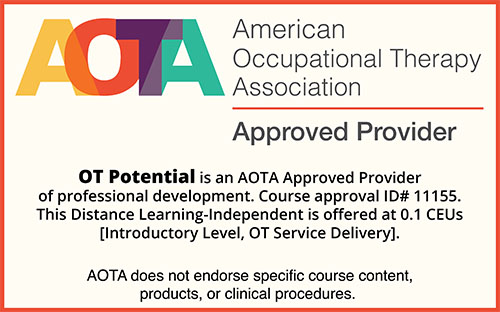
Instructional Methods/Registration/Special Needs Requests/Cancellation Policy
This course is an independent/self-study course delivered via podcast on iTunes, Spotify, Google Play & more.
If you need accommodations to take this course, please contact us and we will address your needs on an individual basis.
If we cancel a promoted course, event, live stream, or any other paid CEU offering prior to release, and you subscribe explicitly for said offering, you are eligible for a full refund if you did not complete and earn any other CEU quizzes or certificates during your subscription.
If a live webinar is cancelled that you signed up for, our system will automatically generate an email to you and if possible, we will inform you of the rescheduled date. Our most current webinar schedule will be found at: otpotential.com/live-ot-ceu-webinars.
Course Completion Requirements
In order to receive a certificate for this course, you must first participate in the podcast/webinar in its entirety. Then, you will need to take the quiz that will accompany the course and earn 75% or higher. If you pass, a certificate will be automatically generated and sent to your email. Quizzes for live (distance learning–interactive) webinars must be completed within 3 days of completing the webinar.
Target Audience/Educational Level
Our target audience is occupational therapy practitioners who are looking to learn about AI and Clinical Decision Support. The educational level is introductory.
Financial and Non-financial Disclosures
It is the policy of OT Potential to disclose any financial and non-financial interest the provider or instructor may have in a product or service mentioned during an activity. This is to ensure that the audience is made aware of any bias of the speaker.
We here at OT Potential have no financial stake in this topic.
Speakers
Brad Willingham, PhD
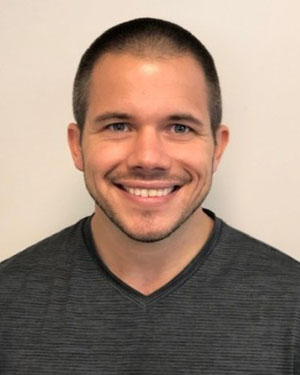
Brad Willingham, PhD, a clinical research scientist at Shepherd Center’s Virginia C. Crawford Research Institute, recently received one of the International Progressive MS Alliance’s Innovations in Well-Being Awards. The highly competitive award funds the first phase of research to identify and implement solutions to some of the most challenging symptoms that people with progressive multiple sclerosis experience.
Sarah Lyon, OTR/L

Sarah’s passion is helping fellow OT practitioners translate evidence into daily practice. Sarah earned her BA in religion from St. Olaf College, then earned her master’s degree in occupational therapy from New York University in 2011.
Since then, she’s worked in numerous facilities, including a critical access hospital, an acute trauma hospital, and a state inpatient psychiatric hospital. Sarah is the founder/owner of OT Potential. Read more about OT Potential here.
This course was designed to meet your continuing education requirements
We designed the courses in the Club to meet the requirements for “online” and “independent/self-study” courses. To verify the requirements from your specific state (within the US), check out our post, OT Continuing Education Requirements. If you are outside of the United States and have questions, please contact us.
We are proud to be an AOTA Approved Provider and to meet the requirements for your NBCOT renewal.
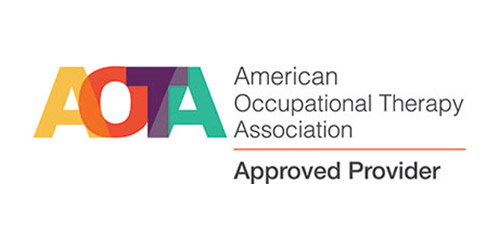
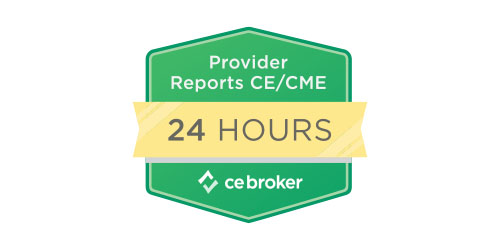
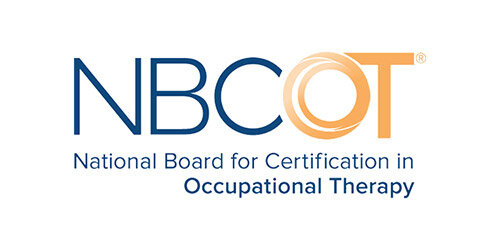
See our other OT courses!
AI and Clinical Decision Support • OT Potential

Today we'll be covering AI and Clinical Decision Support. We'll look at new research and discuss it with Brad Willingham, PhD.
Course Provider: Organization
Course Provider Name: OT Potential
Course Provider URL: https://otpotential.com/
Course Mode: Online
Start Date: 2024-12-05
Duration: 01:00:00
Repeat Count: 5
Repeat Frequency: Yearly
Course Type: Subscription
4.67

